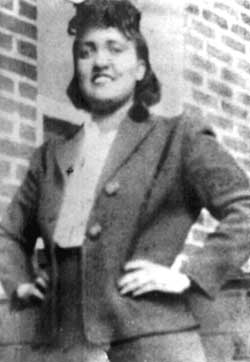The university and its medical system have long celebrated their founding benefactor as a staunch abolitionist. But newly surfaced documents tell a different story.
By Jennifer Schuessler Dec. 9, 2020, 1:20 p.m. ET

It’s a tale that has long been repeated at the university and medical center in Baltimore that bear his name: In 1807, the 12-year-old Johns Hopkins was summoned home from boarding school to work the fields of the family’s sprawling tobacco farm in Maryland after his father, following the directives of his Quaker faith, freed the family’s slaves.
On Wednesday, Johns Hopkins University released new research revealing that there were enslaved people in its founding benefactor’s household as late as 1850. And while the Hopkins family’s entanglements with slavery are complicated, the university has so far found no evidence of Johns Hopkins’s father freeing any enslaved people. Read HERE.
This is the same Johns Hopkins whose name-sake hospital was involved with the non-consentual and uncompensated use of the cancer cells of Henrietta Lacks.
Henrietta Lacks: science must right a historical wrong
01 SEPTEMBER 2020 editorial from Nature.com

Last month marked 100 years since Lacks’s birth. She died in 1951, aged 31, of an aggressive cervical cancer. Months earlier, doctors at the Johns Hopkins Hospital in Baltimore, Maryland, had taken samples of her cancerous cells while diagnosing and treating the disease. They gave some of that tissue to a researcher without Lacks’s knowledge or consent. In the laboratory, her cells turned out to have an extraordinary capacity to survive and reproduce; they were, in essence, immortal.
But the story of Henrietta Lacks also illustrates the racial inequities that are embedded in the US research and health-care systems. Lacks was a Black woman. The hospital where her cells were collected was one of only a few that provided medical care to Black people. None of the biotechnology or other companies that profited from her cells passed any money back to her family. And, for decades after her death, doctors and scientists repeatedly failed to ask her family for consent as they revealed Lacks’s name publicly, gave her medical records to the media, and even published her cells’ genome online. Read HERE.
Learn about The Immortal Life of Henrietta Lacks, both the book and the movie, HERE and HERE. Watch the Lacks family response HERE.